

Tao Te Ching
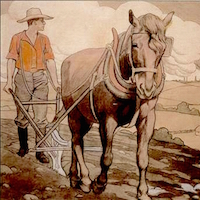
Apostles of Doubt Lineage
Birds sing the same songs over and over, generation to generation. As a force of evolutionary conservatism most animals have a narrow range of sounds almost exactly repeated again and again. Humans feel independent and unique yet like most animal species, think and repeat the same thoughts and beliefs as their parents, their ancestors, and their cultures. Evolutionary change-makers however appreciate and almost revere doubt, innovation, and pioneering the new while often having to accept antipathy and often persecution from the herd committed to the status quo, against change, and afraid of any new notes in the human song. As a symbol for "Apostles of Doubt" we're using a picture of the Taoist Farmer from the famous story described here.
"If you would be a real seeker after truth, at least once in your life doubt all things." — Descartes, René (1596 – 1650)
“All fools are fully convinced and everyone fully convinced is a fool.” — Baltasar Gracian (1601-1658), Art of Worldly Wisdom
“To believe that our beliefs are permanent truths which encompass reality is a sad arrogance.” — Ursula Le Guin (1929- ) Tao Te Ching
“Where there is great doubt, there will be great awakening; small doubt, small awakening, no doubt, no awakening.” — Mumon Ekai(1183-1260)
People (64)

Lao Tzu 老子 (Lǎozǐ)
604 BCE -
The poems translated here say more about Lao Tzu than could any commentary on his life. A huge influence on all of Chinese culture, much of Chinese literature and almost all of Chinese art, Lao Tzu’s teachings also extend to every aspect of life including politics to such an extent that he was claimed as an ancestor by the emperors of the Tang dynasty. Some call Zen “Taoism in Buddhist clothing” and these teachings continue to inspire people in all of the non-thought lineages. As Ursula Le Guin comments, “Of all the deep springs, this is the purest water.”

Buddha गौतम बुद्ध (Siddhartha Shakyamuni Gautama)
563 – 483 BCE
Awakened Truth
While living at about the same time as Lao Tzu, the Buddha was more of a traditional teacher. His teachings, often called Buddha Dharma (“Awakened Truth”) extend and adapt to people in all walks of life: monks, householders, wandering yogis, kings and secular leaders of all kinds. Born into luxury and privilege, Siddhartha realized the meaninglessness of pleasure-seeking, fame, fortune, power and set off on a spiritual quest leading him to the deepest realization and insight. He cautioned against belief systems, herd instinct, and uncritically following leaders, philosophies, and religions.

Protagoras
490 – 420 BCE
“The wisest man alive”—Socrates
Born poor and laboring as a porter, Protagoras was called by Socrates “the wisest man alive” and became a friend of Pericles, so respected that Plato wrote a book about him, and a philosopher so original that he started a thought revolution in ancient Greece with his theory of relativism. This led to an agnosticism that furthered science but aroused enough anger to expel him from Athens and have all copies of his books burned in the marketplace. His still famous statement that "Man is the measure of all things” continues his influence and his saying, “There are two sides to every question” has become a truism and idiom in most languages.
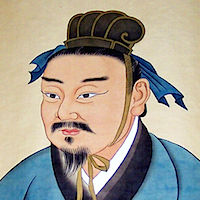
Zisi 子思 (Kong Ji or Tzu-Ssu)
481 – 402 BCE
Confucius' grandson and early influence on Neo-Confucianism
The only grandson of Confucius, writer of the influential Doctrine of the Mean, and teacher of Confucian thought to Mencius; Kong Ji evolved his grandfather’s insights into the difference between real and believed truth, the relativity of understanding, and the possibilities of learning lessons from nature and applying them to everything from politics to daily life. His writings were a deep influence on Zhu Xi and the Neo-Confucian movement becoming one of “The Four Books” that set the educational and political framework in China and throughout Asia for more than 700 years, from c. 1150 to 1905.
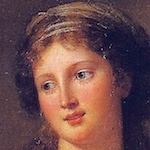
Aspasia
470 – 400 BCE
A female Socrates and dramatic influence on Western culture
An hetaera, a highest class courtesan who – unlike most women of the time - was highly educated, independent, and able to participate in public life, Aspasia became Pericles’ mistress and a dramatic influence on Greek politics, philosophy and culture. Her home was an intellectual greenhouse attracting the greatest thinkers of the era and her teachings influenced Socrates, Plato, Xenohon, and many more. Intelligent, beautiful, charming, and called a "female Socrates;” she taught realization through self-knowledge and although a prostitute, her advise was so respected influential Athenians brought their wives to hear her.
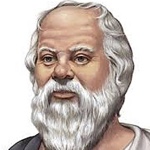
Socrates
469 – 399 BCE
One of the most powerful influences on Western Civilization
A founder of Western philosophy, Socrates’ immense influence, methods and insight challenged conventions and encouraged a simple way of life. His lineage continued through Plato, Aristotle, Alexander the Great and some of his other students began important schools of philosophy like Cynicism and Stoicism. Famous for developing the Socratic Method still used today and which could be considered a way of moving from understanding the words to understanding the sense; Socrates became a profound influence on the Roman empire, medieval Europe, the Islamic and Judaic Middle East, the Renaissance and the Age of Reason in Europe. Through more modern philosophers like Locke, Hobbes, and Voltaire; Socrates stays with us today.
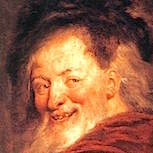
Democritus Dēmókritos
460 – 370 BCE
Father of modern science and greatest of ancient philosophers
The "father of modern science,” famed for his atomic theory of the universe, mathematics and geometry pioneer, called by Francis Bacon “the greatest of ancient philosophers;” the famously cheerful Democritus was born into a very rich family but spent almost all his money becoming in his era the most widely traveled going as far as Ethiopia, Persia, and India where he is said to have been exposed to and influenced by Buddhism. Returning without wealth, he devoted himself to a simple life of philosophy, science, music and art creating an influence still with us today.
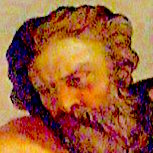
Antisthenes
445 – 365 BCE
Creator of a religious tradition without religion
Founder of the “Cynic” philosophy (named after the place he taught, Dogfish), student of Socrates and with him when he died, plagiarized by Plato, and teacher to Diogenes who made his teachings famous creating a “religious order without religion;” Antisthenes taught that the wise follow the sense and not the words, virtue instead of laws, insight instead of memes. Criticizing belief in universals, he questioned taking fame, fortune, pleasure and power as life priorities and modeled the value of a simple life in harmony with nature setting the stage for the early Christian ascetics. Dressing in the most common and worn clothes, he refused any pay for his teachings and preferred poor students.
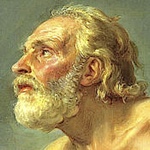
Diogenes (of Sinope)
412 – 323 BCE
Exiled from his place of birth, Diogenes lived as a citizen of the world begging for food and sleeping in a big ceramic jar. Carrying a lamp during the day “looking for an honest man,” he publicly ridiculed Alexander the Great, sabotaged and embarrassed Plato, and was sold into slavery after being captured by pirates. He developed Cynicism and teachings that became Stoicism, one of the most influential philosophies of Greek culture. He criticized the artificialities of society and advocated simplicity and a return to nature. Referencing him in their works, he inspired many great literary figures including Chekhov, Blake, Goethe, Dostoevsky, Cervantes, Charlotte Brontë and Charles Dickens. Called by Plato ”Socrates gone mad,” his poetic spirit and lifestyle continued through the ages, manifested in modern times by people like Charles Bukowski, and embodied in stories like Jack Kerouac’s On the Road.
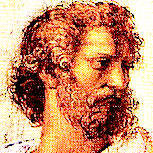
Aristotle Ἀριστοτέλης
382 – 322 BCE
Famous student of Plato and teacher of Alexander the Great, the first to organize a group to do scientific research, to systemize Western philosophy, to formalize a system of logic and to develop a theory of evolution; Aristotle is considered "The First Teacher" by Muslims and a profound influence on Judaism and Christian theology that extended through the Renaissance and continues today. Though only about one third of his writings remain and much more a proponent of the words rather than the sense, Cicero described him as "a river of gold,” Dante as “the master of those who know,” and through 1500 years of European history, “the philosopher.” He taught virtue as the secret of happiness, politics as the art of compromise between classes, and politically creating a balance between faith and reason, equality and freedom.
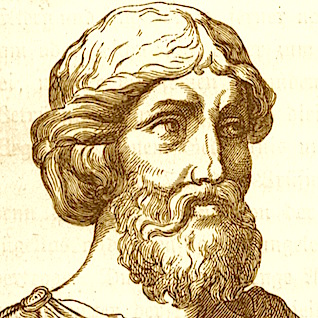
Epicurus ɛpɪˈkjɔːrəs
341 – 270 BCE
Western Buddha
Author of 300 lost books, a huge influence on western philosophy through Schopenhauer, Nietzsche, Karl Marx, David Hume, and inspiration for Thomas Jefferson’s “all men are created equal and endowed with certain unalienable rights, such as life, liberty, and the pursuit of happiness;” Epicurus blended the wisdom of pleasure with the pleasure of wisdom (Durant) and fostered equality and freedom welcoming into his school without prejudice slaves, different races, women, and courtesans. “Unsurpassably kind” to everyone, with many parallels to Lao Tzu, Epicurus taught that the purpose of philosophy is to free us from fear and suffering, to guide us to happiness.
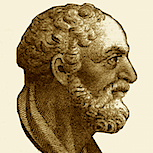
Arcesilaus Ἀρκεσίλαος
316 – 241 BCE
Founder of the Greek Middle Academy and the first to adopt Academic Skepticism doubting the ability of the senses to discover truth, Arcesilaus debated against the Stoic belief that reality can be known with certainty. He didn’t doubt that “truth” exists, only that it could be confined in concepts. This led to an emphasis on practical life like in the Zen tradition (“chop wood, carry water”) with a disregard for speculation, superstition, and belief systems; an emphasis on moderation; and an early appreciation and respect for a philosophy of doubt (though he was accused by Pascal of becoming a dogmatist in later life - a testament to the power of herd instinct and the desire to belong above creativity and openness).
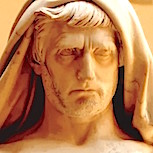
Cato (the Younger, Marcus Porcius Cato Uticensis)
95 – 46 BCE
Incorruptible politician, insightful Stoic philosopher, long-time stubborn rival and opponent to Julius Caesar’s despotism; Cato was one of the most active defenders of the Roman Republic and his suicide was considered by later Romans a great psychological and cultural victory over Caesar's tyranny. Hero in Virgil’s Aeneid, mentioned in the first paragraph of Moby Dick, immortalized through the ages in plays, novels, poetry, opera, and television; Dante described him in Purgatorio as a “saved soul” who was “worthy of so much reverence that never a son owed his father more.” Immune to bribes and corruption, he became a symbol for individual liberty over governmental tyranny; democracy over monarchy, reason over belief and superstition; Cato greatly influenced George Washington and the founding of the US government.
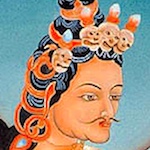
Saraha
8th century CE
Earliest Mahasiddha, founding father of the Buddhist Vajrayana and Mahamudra tradition; Saraha was expelled from a monastery for drinking alcohol, found a young low caste bride, became a maker of arrows, and went on to write the main Mahamudra meditation text and become a great yogi and master song writer. Like Lao Tzu, he followed the same “Inborn Natural Way” and began the lineage which descended through time to Tilopa, Naropa, Marpa, Milareapa and now to the Gyalwang Karmapa.
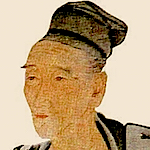
Layman Pang 龐居士
740 – 808 CE
Layman Pang 龐居士 Páng Jūshì, Hōkoji (740–808)
Successful merchant, family man, celebrated lay Buddhist; like Vimalakīrti and Marpa the translator, Pang exemplifies possibilities of the highest realization and enlightenment for people in everyday walks of life without needing to live in a monastery or remote cave, without being a yogi, monk, or nun. He did however worry about his success and wealth becoming an impediment to his spiritual path and at one point loaded all his riches in a boat that he sunk in a river. He and his family then traveled around China visiting great teachers and surviving by making and selling bamboo utensils. These travels and his words were immortalized in Blue Cliff Record koans as was his daughter Ling Zhao’s words, "Neither difficult nor easy, on the hundred grass tips, the great Masters' meaning" and "Not difficult, not easy—eating when hungry, sleeping when tired."
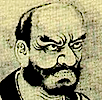
Rinzai Gigen 臨済義玄 (Línjì Yìxuán)
? - 866 CE
Student of Huangbo Xiyun, iconoclastic founder of a major Chán Buddhist school and one of the Five Houses of Zen, Rinzai; Gigen or Linji fiercely challenged students who accepted the superficial, conceptual meaning of buddhist teachings rather than penetrating the true meaning deeper than the words to find genuine wisdom and understanding. A book of his sayings recorded by one of his students, The Record of Rinzai (Zen Teachings of Rinzai), became one of the main texts for the Rinzai school as well as a big influence on buddhism and the evolution of consciousness in general. Known for his uncompromising approach to teaching that included yelling at and hitting his students, he directly continued the Buddha’s flower-sermon styleof non-conceptual teaching.
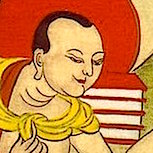
Catrapa ཙ་ཏྲ་པ། ("The Lucky Beggar")
750 – 850 CE
Mahasiddha #23
Catrapa while begging always carried a small dictionary that attracted a wise teacher who asked him about the book and then his life. This led to teachings and a practice of dissolving all concepts, prejudice, negative and moral conditioning, and a blending of action with perception into a deep, non-dual awareness of each everyday experience in life. Instead of teaching morals, ethics, and discipline; he exemplified and taught the crazy wisdom of wu wei, enlightened spontaneity based on direct, unfiltered realization. Mahasiddha #2
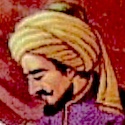
Al-Kindi (Abu Yūsuf Yaʻqūb ibn ʼIsḥāq aṣ-Ṣabbāḥ)
801 – 873 CE
While European countries were still stuck in the dark ages of almost universal superstition and ignorance, Al-Kindi - knows as “father of Arabic philosophy” - precipitated the “Moslem Enlightenment,” one of the true golden ages of human history, a time that threw off its dogmatic shackles of uncritical belief and advanced science, direct experience unfettered by external sources, understanding of the sense and not just the words. A famous historian, physician, polymath, musician and mathematician; he brought Hellenistic wisdom into the Muslim world and shocked his contemporaries by appreciating Christianity.
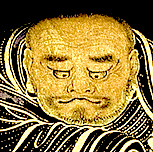
Huangbo Xiyun 黄檗希运 (Huangbo Xiyun, Huángbò Xīyùn, Obaku)
? - 850 CE
An uncompromising and fierce teacher, Huángbò often hit and shouted at his students including a future emperor of China. Though according to the Blue Cliff Record he was seven feet tall, very little is known about his personal life — unsurprising given his uncompromising disregard for conceptual thinking, his focus on egolessness and One Mind. Once when he told his students that in all of China there are no teachers of Zen, a student asked him how he could say that since he was teaching them. Huángbò answered, “I didn’t say there was no Zen, just no teachers.”
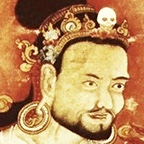
Tilopa
988 – 1069 CE
Born a king, Tilopa - like the Buddha - wasn’t that impressed by fame and fortune and left everything to go on a spiritual search. When he met the teacher Nagarjuna though, he was told to return to his kingdom and kingship. He saved his country during a war with non-violence. He later became a monk and scholar but another teacher, Matongha saw pride remaining from his royal caste and advised him to leave, go into the world, and take a job crushing sesame seeds during the day and procuring for a prostitute at night. This led to him becoming a great Mahasiddha, lineage holder and teacher to Naropa.
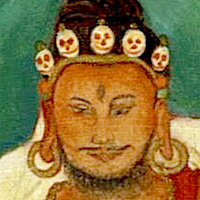
Mekopa མེ་ཀོ་པ། ("Guru Dread-Stare")
1050 CE –
Mahasiddha #43
Mekopa, མེ་ཀོ་པ། Guru Dread-Stare (11th century)
Always cheerful and kind Bengali food merchant taken as a student by a yogin customer, Mekopa saw into the vastness of his own mind, the uselessness of chasing desires, and harmfulness of action based on duality. His realization led him far beyond the limits of status quo, conventional social standards and behavior; into a lifestyle unbound by concern for people’s opinion, wandering about a cremation ground “like a wild animal” and into towns like a mad saint with dreadful, staring eyes. Mahasiddha #43
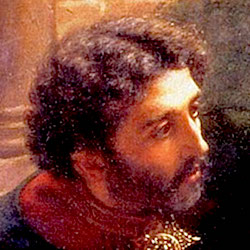
Peter Abelard Pierre Abélard
1079 – 1142 CE
Peter Abelard, Pierre Abélard (1079 – 1142)
Described as "the keenest thinker and boldest theologian of the 12th Century,” Abelard was on a strong path to becoming a pope when he fell in love with Héloïse and instead wrote some of the most important books of his era while becoming a legend in the history of romantic love, of inner certainty over external, status quo coersion. In his early life, thousands of students coming from many countries came to hear him teach. His fame and admiration immense, but his love of Héloïse led to his castration by her uncle, his becoming a monk, and her becoming a nun. This challenged the physical side of their relationship but their deep emotional bond continued through letters written the rest of their lives.
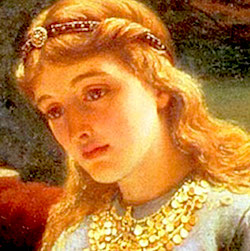
Heloise
1090 – 1164 CE
An orphan raised in a convent, Héloïse became a brilliant scholar, one of the earliest and most radical feminists, a powerful abbess over multiple convents, and half of one of the most famous and talked about relationships of her era. As femme fatale to Peter Abélard when he was on the rise toward becoming a pope, her influence caused him immense humiliation and pain as well as the inspiration for some of the most important books of the time, a regard for the sense over the words, and a declaration of philosophical independence for reason over belief. It’s become a tradition for the hoping-to-find-true love to leave letters at their crypt.

Ibn' Arabi Ibn 'Arabi
1165 – 1240 CE
“the foremost spiritual leader in Muslim history”
Islamic Scholar, Sufi mystic, poet, philosopher and genuine saint; Ibn ‘Arabi was born during and at the center of a time and place where Christian, Jewish, and Islamic thought were cross-pollinating with a rediscovery of ancient Greek and Roman wisdom. In over 350 literary works including some of the finest poetry in the Arabic language, he influenced Islam away from rigid orthodoxy toward a universal understanding that appreciates each person’s unique and personal spiritual path above doctrine and belief. A polarizing figure in Muslim culture, he’s known as either “the foremost spiritual leader and Sufi master in Muslim history” or as a heretic and apostate.
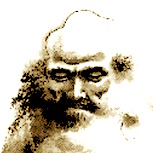
Mumon Ekai 無門慧開 (Wumen Huikai)
1183 – 1260 CE
Pioneering pathfinder to the Gateless Gate
Epitome of the Chan/Zen master, Lay Monk, and famous koan collector/commentator; Mumon wandered homeless with long hair and beard in old and dirty robes for many years working in the temple fields. Emphasizing the importance of "Great Doubt,” he taught that enlightenment is “just a matter of rousing the mass of doubt throughout your body, day and night, and never letting up." His koan compilation, The Gateless Gate has stopped the “word-drunkenness” of countless students through the centuries and still inspires and points out a a true but “gateless” path.
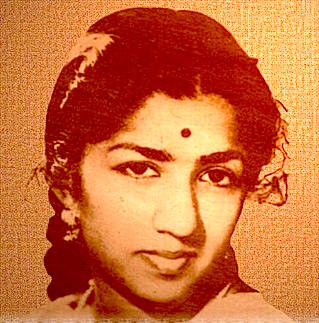
Razia Sultan Jalâlat-ud-Dîn Raziyâ (Raziya al-Din)
1205 – 1240 CE
Daughter of a Turkish slave who rose to become a sultan and the only woman to rule the Delhi Sultanate before or since; Razia devoted her rule to helping her people and established many libraries, research centers, and schools that went far beyond purely Islamic studies and included ancient philosophies, science, astronomy, and literature. Abandoning the veil, she was just, tolerant, and on religious matters emphasized the sense over the words, the spirit as more important than dogmatic belief. Her romantic love affair with Altunia is still famous and her inspiration continues in modern movies and TV shows.

Montaigne
1533 – 1592 CE
Grandfather of the Enlightenment
Son of a fish-seller, grandfather of the Enlightenment, “the first modern man,” statesman, author, apostle of doubt and moderation, Renaissance author most in harmony with the modern mind; Montaigne wrote some of history’s most influential essays. A master story-teller balancing philosophy with personal anecdote, deep insight with entertainment, wisdom and humor; he built on Lucretius and had a direct influence on Francis Bacon, Descartes, Pascal, Rousseau, Emerson, Nietzsche, and Shakespeare. “The most pagan of Christians,” called “the wisest Frenchman that ever lived,” he is still “read today as if he had written yesterday
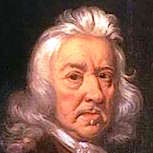
Thomas Hobbes
1588 – 1679 CE
Secretary, student, friend to Francis Bacon; Hobbes established the foundation for most modern political philosophy. Formulating social contract theory, he promoted individual rights, natural equality, government based on the will of the people, only representative government as legitimate, and the freedom to do anything that laws don’t forbid. He described human nature as “self-interested cooperation” and introduced mathematical reasoning to the philosophy of science. Though called “the father of totalitarianism” and fixated on peace and order, his radical shift from religion and belief to applying science for understanding human nature helped undermine that same “order” creating more personal, political freedom.
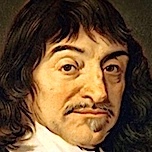
René Descartes
1596 – 1650 CE
Though remaining a Catholic, solidifying the dualistic view in Western thought as well as “Cogito ergo sum” belief in a separate self; Descartes emphasized methodic doubt and the impossibility of externally based intellectual certainty undermining faith in belief and Church doctrine. This sparked a thought revolution that created the modern era. He developed analytic geometry (using x, y, and z for unknowns) and using superscripts for powers or exponents, discovered the law of reflection, and the basis for the development of calculus. Known as the “father of modern philosophy,” he changed the course of Western philosophy and his influence continues to this day.

Balthasar Gracian
1601 – 1658 CE
Spanish Jesuit, philosopher and prolific writer, Gracian amplified the slogan/quote tradition of Aesop, Yang Xiung, the Dhammapada, Atisa and continued by Erasmus and Ben Franklin. At times highly respected, he was also exiled by outraged superiors for his provocative philosophy and lost his teaching tenure. An important influence on Nietzsche, Voltaire, Schopenhauer and Winston Churchill; his book Art of Worldly Wisdom - translated into many languages – continues today as a best seller and exceptionally valuable resource of helpful advice.
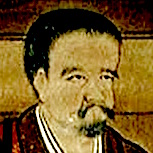
Bankei 盤珪永琢 (Bankei Yōtaku)
1622 – 1693 CE
Along with Dogen and Hakuin, one of the most influential Japanese Zen masters, Bankei developed a teaching he called “Unborn Zen” - a refinement D. T. Suzuki called “one of the most original developments in the entire history of Zen thought.” As a student, Bankei traveled widely, studied Confucian texts, practiced
Shin Buddhism, studied with many famous scholars, became a monk, but remained unsatisfied. Seriously ill and with a fatal prognosis, a near-death experience led to his enlightenment and return to health. Refusing a senior position in his monastery, he instead worked in the kitchen and then moved to the mountains living as a hermit and developing his teaching of seeing into the true nature of existence.
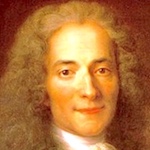
Voltaire, François-Marie Arouet
1694 – 1778 CE
Nemesis to tyrants and fanatics of all styles, powerful fighter for civil rights, separation of church and state, freedom of speech and religion; Voltaire drank up to 72 cups of coffee a day and wrote more than 2,000 books and pamphlets. Admiring Confucian ethics and political theory, his writings inspired the founders of America, the best thinkers of his time, numerous kings, queens and world leaders, millions of people in every generation since. To a large extent we owe to his influence much of the freedoms in the world today; the humane treatment of the insane, sick, and criminal; the number of libraries, schools, and universities for common people. Historian Will Durant wrote, “When we cease to honor Voltaire, we shall be unworthy of freedom.”
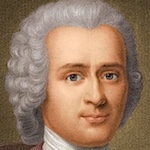
Jean-Jacques Rousseau
1712 – 1778 CE
Motherless from almost birth, abandoned by his father, poor in health and income; Rousseau wandered on his own for 12 years challenging the status quo and rejected by society as a dangerous rebel or insane criminal. Stoned by neighbors when he went for walks, harassed by police, and expelled from countries; he went on to become “the finest thinker of his time,” a main source for Jefferson and the Declaration of Independence, a cause of the French Aid for the American Revolution, and a seminal influence on Tolstoy, Wordsworth, Thoreau, Byron, Shelly, Keats, Schopenhauer, Kant, Goethe, and Marx. He transformed education, inspired the French Revolution and the Romantic Movement, wrote political and social books that became cornerstones of modern thought.
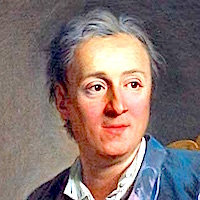
Diderot
1713 – 1784 CE
Philosopher, art critic, scientist, and writer; Diderot was imprisoned in solitary confinement for his philosophical views and mainly only known for his plays and encyclopedia during his lifetime. His rival Rousseau though believed posterity would give him the same respect as Aristotle and Plato and he was later admired by Goethe, Schiller, Balzac, Zola, and Schopenhauer. He was Karl Marx’s favorite prose writer and Comte called him the “foremost intellectual of an exciting age.” He worked on the Encyclopédie as a way of giving power to the common person and emphasized religious tolerance, freedom of thought, the value of science, and—threatening the French aristocracy—maintained that the main purpose of government should be benefiting the common people.
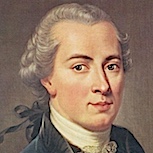
Immanuel Kant
1724 – 1804 CE
Credited with creating a paradigm shift responsible for much of modern philosophy, psychology, metaphysics, sociology, linguistics, and political theory; Kant was a quiet and introverted philosopher whose daily schedule was so precise that neighbors were said to set their watches by it. Child of the Enlightenment and father of the Romantic movement, he barely traveled but became “the central figure of modern philosophy,” inspired the American transcendentalism of Emerson and Thoreau, and a profound influence on many important thinkers like Hegel, Novalis, G. K. Chesterton, Schopenhauer, Bertrand Russell, Max Weber, Jean Piaget, and Noam Chomsky.
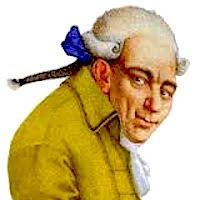
Georg Christoph Lichtenberg
1742 – 1799 CE
One of history’s best aphorists
Youngest of 17 children, scientist, professor of physics, satirist, and hunchback; Lichtenberg had a major influence on the culture of his times that extends into the modern world. He discovered tree-like electrical patterns now called Lichtenberg figures or fractals, the basic principles used now for copy machine technology, a “Compass of Motives” praised by Freud and also standardized the paper sizes now used in most of the world. Considered one of history’s best aphorists, he was read and admired by wisdom lineage holders like Arthur Schopenhauer, Friedrich Nietzsche, Sigmund Freud, Leo Tolstoy, and even Chinese scholars like Qian Zhongshu.
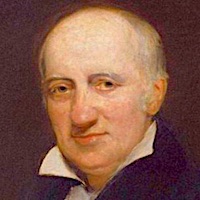
William Godwin
1756 – 1836 CE
Provocative and influential social, political, and literary critic
Mary Shelley’s father, married to pioneering feminist Mary Wollstonecraft, journalist, philosopher, publisher, translator, and author; Godwin became the first to promote utilitarianism and modern anarchism. He attacked aristocratic privilege, advocated the abolition of marriage, wrote numerous novels, and became a major influence on British literature and culture. His views on progress, life extension, and human perfectibility gave inspiration for his daughter’s novel, Frankenstein. He opposed Malthus, became a literary influence on Dickens and Poe, a political influence on Peter Kropotkin, libertarianism, and communism.
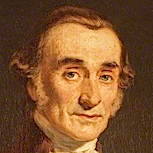
Charles Mackay
1814 – 1889 CE
English journalist in the US covering the civil war, Scottish poet, songwriter and novelist; Mackay used Gracian’s insight that “all fools are fully convinced” as a foundation for much of his writings. He described the Middle Ages mania called the Crusades, the 17th century Dutch tulip phenomenon as one of many economic/financial bubble manias, 16th- and 17th-century witch trials when thousands of people were executed as witches, and other national and philosophical delusions. A strong proponent and eloquent “apostle of doubt,” he wasn’t taken seriously during his lifetime but is still a big influence today referenced by stock traders, Forbes magazine, BusinessWeek, Neil Gaiman, Financial writer Michael Lewis, and many others.
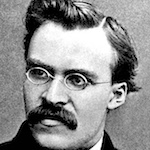
Friedrich Nietzsche
1844 – 1900 CE
Philosopher, scholar, poet, unifier of opposites and courageous critic of Western Civilization, Nietzsche proclaimed that “God is Dead,” that Christianity is “one great curse, one great intrinsic depravity,” and then started a “campaign against morality.” With a deep appreciation for Buddhism and rejecting external authorities like a “God” or a Church, he extolled the ability for people to discover their own morality grounded in reality rather than following herd-based ethics and beliefs. With a dedication to the sense over the words, people as diverse as D. H. Lawrence, Mishima, Rilke, Jack London, Hermann Hesse, Martin Heidegger, Carl Jung and many others described him as a most important influence on themselves personally as well on as society and the evolution of consciousness.
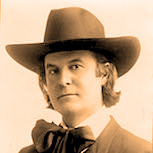
Elbert Hubbard
1856 – 1915 CE
Traveling soap company salesman who invented the “leave on trial” technique, philosopher, artist, trouble-maker and writer; Hubbard identified with the Thoreau, Whitman, Tolstoy lineage and distilled this philosophy in his famous essay, A Message to Garcia. Often mocked for "selling out,” convicted for circulating "obscene" material but pardoned by Woodrow Wilson; he seemed to live his famous adage, “When life gives you lemons, make lemonade.” He blended philosophy and business, idealism and practicality stretching into the wisdom beyond words. Survivor of the Titanic sinking, he died along with his wife in stoic acceptance on a different ship sunk by a German submarine.
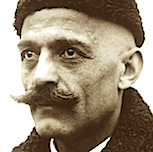
G. I. Gurdjieff
1866 – 1949 CE
Philosopher, mystic, composer, ragged wanderer, successful entrepreneur, and deep spiritual teacher; Gurdjieff emphasized the hypnotic, dull, and asleep quality of our lives and - like the Buddha and many others - that we can “wake up.” His intense curiosity led him on extensive travels through Tibet, Russia, India, Iran, Egypt, North America and throughout Central Asia in a search for "seekers of truth,” people like we include on these lists. He felt that our religious and philosophical traditions have migrated from understanding the “sense” to mindless belief and adherence to the forms, to only the “words.” He sought to revitalize ancient wisdom traditions (Socratic, Stoic, Vedic, Buddhist) making them alive and relevant to contemporary life. His popular teachings on the enneagram remain influential today.

Hermann Hesse
1877 – 1962 CE
Guiding light for a world-wide cultural transition, spiritual teacher to the Beat generation, poet at heart and in life, soul of his age; Hesse was expelled from a Protestant seminary, denounced by the German media when he protested German’s involvement during WWI, and his books were banned and destroyed by Hitler. The 20th century’s most widely read European author, his books personify the balance between freedom and equality, the individual and society and the integration of opposites extolled by the non-thought lineages. After writing Nobel Prize-winning book, The Glass Bead Game, he devoted his life to mentoring young people and collaborating with peers like Thomas Mann and Carl Jung. He wrote over 30,000 letters to hundreds of different correspondents
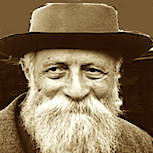
Martin Buber מרטין בובר
1878 – 1965 CE
Influential philosopher, educator, and political activist; Buber challenged materialistic thinking and promoted a deep interpersonal respect and appreciation. Like most of the people in these biographies, he warned against belief systems and advocated a conceptless-mind and open-hearted experience of the world. He inspired Jewish cultural renewal, developed an educational model based on the whole person, and supported a bi-national Israeli-Palestinian state. Related to 16th century rabbi Meir Katzenellenbogen, Helena Rubinstein and Karl Marx; he challenged Hegel, Kant, Kierkegaard and Nietzsche. Not considering Jewish culture or religion necessary, he was criticized by Jewish scholars for this as well as emphasizing direct experience above Jewish law.
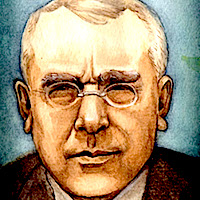
Ouspensky Пётр Демья́нович Успе́нский (Pyotr Demianovich Ouspenskii)
1878 – 1947 CE
Close student, popularizer and critic of Gurdjieff; Ouspensky explained ways to discover the sense beneath the words (“the actual meaning of the thing itself") with a psychological method he described as "a calibration of the tools of human understanding.” Though not religious, he kept one prayer—to at least not during his lifetime become famous. That prayer was granted but he still had a deep impact on many famous people like T. S. Eliot, Aldous Huxley, and many influential writers, psychologists, and journalists. Championing "the esoteric method,” he evolved a philosophy that expanded beyond the Aristotelian logic of A = A to include a more Taoist/Buddhist understanding that A = A and A = not-A. The Buddhist influence extended to his version of mindfulness practice which he described as “being aware of being aware.” His books and influence helped launch what today is called Secular Buddhism but also many New Age versions of spiritual materialism.

Albert Einstein
1879 – 1955 CE
Although he made his name synonymous with genius as the father of modern physics and his E = mc2 became ”the world's most famous equation,” Einstein remained humble and unassuming. Although winning a Nobel Prize and writing over 30,000 documents, he didn’t let himself be seduced by fame and fortune but championed civil rights, non-violence, and - like Chuang Tzu and other famous Taoists - refused political honors including becoming the president of Israel. He worked hard for checking the power of nation states with a democratic global government, believed in a pantheistic god, and as an avid violin player said, “I often think in music.”

Inayat Khan
1882 – 1927 CE
Grandson of famous musician and “Beethoven of India,” Ustad Maula Bakhsh and married to the cousin of Christian Science founder Mary Baker Eddy; Inayat Khan joined together esoteric mysticism with the magic of music and brought Sufism to the West. He warned against any blind belief systems and inspired visions of beauty, harmony and love. He taught that nature is the only holy book, self-realization the only truth, “unswerving progress in the right direction” the only religion, and all the children of earth our only true family. He traveled widely spreading his vision of seeing through the identifications separating people and harmonizing the East and the West.
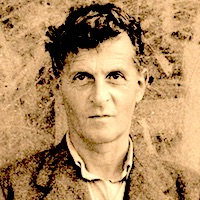
Ludwig Wittgenstein
1889 – 1951 CE
One of the world's most famous philosophers
From one of Europe's most wealthy families, Wittgenstein inherited a vast fortune and then—believing that money hinders philosophy—gave it away to artists, writers, and to his brothers and sisters. One of the world's most famous philosophers, he worked incognito teaching in remote Austrian villages and in hospitals during World War II. He kept most of his writings unpublished until after his death when his books like Philosophical Investigations became recognized as some of the most important books of 20th century philosophy. His strong influence continues today in almost every field of social sciences and the humanities.
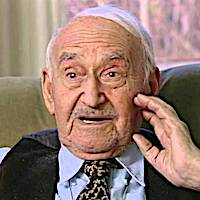
George Seldes
1890 – 1995 CE
Pioneering investigative journalist and champion of the exposé
Star investigative reporter, muckraker, contrary-minded journalist, author, philosopher, and true citizen of the world; George Seldes lived a 104-year life full of adventure in dangerous countries, political challenge on the edge, and philosophical insight threatening the status quo. There and reporting on Hitler’s Berlin, Lenin’s Moscow, Mussolini’s Rome, and Franco conquering Spain; he was often characterized as too radical. Criticized and censored by newspapers, foreign and U.S. governments; one of his censored interviews with the supreme commander of the German Army could have prevented the rise of Nazi power before World War II. Expelled from the Soviet Union after interviewing Lenin and “not showing enough respect,” and from Italy after he implicated Mussolini (who had worked for Seldes before gaining power) in the murder of an opposition leader; he wrote exposés on the Roman Catholic Church, the global arms industry, and the complicity of the press with the tobacco industry in suppressing information on the bad effects of smoking. Toward the end of his life, he spent 20 years gardening and gathering material for a book of the world’s most influential thoughts.

Krishnamurti (Jiddu Krishnamurti)
1895 – 1986 CE
Born into a poor family with 11 children and a mother who died when he was 10, chosen and groomed by the Theosophical Society when he was 14 years old to become the new “World Teacher,” a messianic Maitreya and Cosmic Christ figure; Krishnamurti was showered with financial resources, reverence, publicity and followers. When still young, he renounced this role of guru and mystical belief system, disbanded the organization, and launched a teaching career that emphasized psychological rather than external revolution; going beyond philosophy, nationality, caste, religion; the sense over the words; and freedom from all social, political, or religious conceptual prisons.
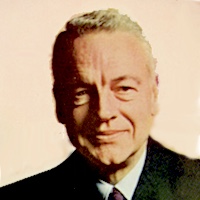
Robert Hutchins (Robert Maynard Hutchins)
1899 – 1977 CE
An educational philosopher whose time has arrived; Robert Maynard Hutchins was University of Chicago president, Yale Law School dean, Editor In Chief of the Great Books of the Western World, and a leading proponent of secular perennialism—nonspecialized and nonvocational
education based on discovering the “sense” rather than relying on just the words, on principles not just facts. Encouraging deeper understanding, prioritizing thinking for ourselves, and attacking superficial focus on entertainment and the narrow “trade school” approach to education; he eliminated varsity football at the University of Chicago and implemented novel educational programs based on the Great Books and Socratic dialogue. In later life he ran the Ford Foundation and channeled huge sums into programs for adult education, to train teachers, and to spread liberal arts. One of these became PBS.
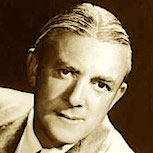
James Hilton
1900 – 1954 CE
Writer of the first paperback novel (PocketBooks #1 said to have started the "paperback revolution"), Academy Award winner, author of 22 books, and creator of the now famous "Shangri-La;” Hilton imagined, populated, and launched into our cultural consciousness his depiction of a happy and enlightened group living in a remote, secret, almost inaccessible, and secret land protecting the best of culture during a dark age. Many cultures have similar myths but his was so powerful Franklin D. Roosevelt used it as name for the presidential retreat now called Camp David and China recently renamed an entire mountain region after it. Many of his characters exemplified a deep wisdom and appreciation for doubt over belief.
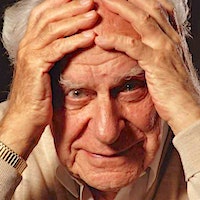
Karl Popper
1902 – 1994 CE
Major Philosopher of Science
Social commentator, philosopher, and academic; Popper grew up in an academic household. His parents were good friends of Freud's sister and his father was a true bibliophile with as many as 14,000 books in his personal library. During his student years, he became very interested and supportive of Marxism until police shot 8 of his unarmed friends. That led him to a life-long support of social liberalism and his creation of an evolved philosophy of science. One of his students—George Soros—became a philanthropic billionaire and now support a think-tank dedicated to Popper's influence. Rather than fixating on just one point of view, he worked to reconcile diverse ideas from socialism, libertarianism, social democracy, traditional liberalism and conservatism.
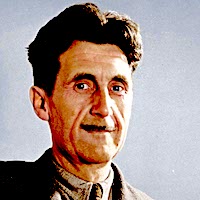
George Orwell
1903 – 1950 CE
English, poet, humanist, apostle of doubt, and powerful political influence
George Orwel, Eric Arthur Blair (1903–1950)
Novel-writing journalist, one of the best English essayists, ranked second on a list of "The 50 greatest British writers since 1945,” insightful literary critic, humanist, poet and powerful political influence; Orwell transformed a life filled with failure, poverty, and humiliation into literary genius and cultural influence. Originator of many words and phrases that have become part of popular culture—"Thought Police", "Big Brother", “Cold War,” "memory hole", "doublethink", “Orwellian,” and "thoughtcrime”—his writing exposed intellectual hypocrisy, social injustice, totalitarian and authoritarian influences, and turned his difficult experiences into great literature.
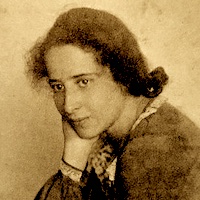
Hannah Arendt
1906 – 1975 CE
Fearless researcher into the darker reaches of the human psyche
An influential philosopher, historian, and deep thinker; Arendt developed some of the most important political theories of the 20th century. An early, 1932 critic of the Nazi Party; she was arrested the year Hitler came into power, imprisoned, escaped, and her German citizenship was taken away in 1937. Arrested again in France, she escaped again and eventually came to the USA in 1941
Influenced by and a major influence on Martin Heidegger, she studied under him and had a four-year affair when she was 17 and he 35. She also studied with Karl Jaspers who became her doctorate degree supervisor.
Her research and thinking focused on the formation of nationalistic, fascist, and totalitarian systems and how ordinary people become controlled into following them. She applied these theories in covering the trial of Adolf Eichmann for the New Yorker in 1961 which created one of the biggest controversies of the era.
Instead of accepting the common depiction of Eichmann as an evil monster, she described him as a victim of an unwillingness to think clearly and instead mindlessly take orders. This refuted the dualistic understandings and accepted ideas of the time about unquestioning obedience to superiors. These were some of the most relevant issues in preventing more totalitarian take-overs but brought about intense criticism of her from many sides.
Perhaps Jung's ideas about projection were at play here: people not seeing or admitting the pulls toward this kind of evil in themselves and projecting it out completely on Eichmann whom she described as only "banal," ordinary, fixated on the duty of obedience, and abandoning critical thinking — qualities possibly shared too closely by the critics.

Dietrich Bonhoeffer
1906 – 1945 CE
Theologian, prolific and influential author, anti-Nazi double-agent spy, martyr, and non-thought lineage holder; Bonhoeffer worked against Hitler and the Third Reich when almost everyone around him was either seduced, bullied or exterminated and his fellow pastors were preaching, "Christ has come to us through Adolph Hitler." Leaving a safe home in America; he helped smuggle Jews into the neutral Switzerland, vocally and secretly opposed the Nazis, and was tortured and killed in a concentration camp. A deeply religious Christian, he taught a “religionless Christianity” without a metaphysical God confused by concepts and belief.
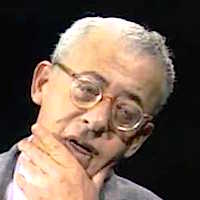
Saul Alinsky
1909 – 1972 CE
Saul Alinsky (1909 – 1972)
“Founder of modern community organizing,” “creator of a backyard revolution in cities across America,” champion of the poor and powerless; Alinsky became a strong influence on Cesar Chavez, Hillary Clinton, Barack Obama and Dolores Huerta but his methods and strategies were also studied and used by Tea Party organizers. Dedicating his own work to improving the living conditions in poor communities, he was active in the labor movement, poverty alleviation across the USA, in black ghettos, and California barrios. Reviled and banned by establishment politicians but admired and imitated by counterculture-era organizers; he was described by William F. Buckley Jr. as an “organizational genius,” by Adlai Stevenson as “a most faithfully reflect[ion] our ideals of brotherhood, tolerance, charity and dignity of the individual,” and according to Time magazine he “altered democracy.”
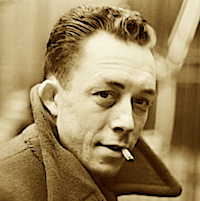
Albert Camus
1913 – 1960 CE
Journalist, playwright, philosopher, pacifist, philhellene, winner of the Nobel Prize in Literature, and Paradox of the Absurd champion; Camus grew up with an impoverished and illiterate mother who survived working as a house cleaner after his father was killed in WWI. Devoted to human rights, he worked in the French Resistance, for UNESCO, and protested against the Soviet police state. He passionately opposed capital punishment as well as all the other forms of totalitarianism. Philosophically he understood relative versus absolute understanding, rejected hope, criticized nihilism, pointed out the absurdity of our many paradoxes and confused, dualistic fixations, and explored the absurdity of finding the meaningfulness of life in external action. In many ways he wrestled with the same issues as Protagoras, the Buddha, and Lao Tzu.
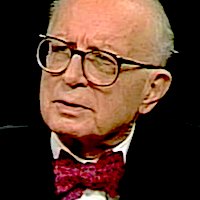
Daniel J. Boorstin
1914 – 2004 CE
American intellectual Paul Revere
“An intellectual Paul Revere,” American historian, US Congressional Librarian, Rhodes Scholar, and Pulitzer Prize winner; Boorstin became a Communist Party member when young, a prominent conservative in later life. Promoting the "consensus school" of history, he praised entrepreneurs and inventors, criticized conformity, bureaucracy, slavery to tradition, and an historical emphasis on class conflict. On a parallel track with Marshall McLuhan he praised, analyzed, and warned about the unintended consequences and social upheaval that inevitably arises from new technology. With self-effacing insight, he looked deeply into American culture both praising and criticizing aspects of this unprecedented historical experiment.
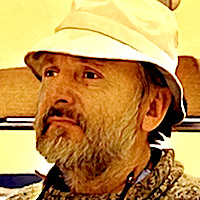
Robert M. Pirsig
1928 – 2017 CE
American philosopher, modern-day Thoreau-on-wheels, 170 IQ precocious child, and high school graduate at only 14 years old; Pirsig experienced a difficult and troubled life. He was expelled from college, had a nervous breakdown, spent time in psychiatric hospitals, was diagnosed with paranoid schizophrenia and was treated with electroshock therapy. His wife divorced him and his 22-year-old son was stabbed and killed. In spite of (or because of) these challenges, he was awarded a Guggenheim Fellowship, given an honorary doctorate degree, and wrote a book called “brilliant beyond belief,” “a cornerstone of the Beat/Hippie literary era," and that was compared to the writings of Dostoevsky, Proust, and Melville. Unseduced by fame, he intentionally led a quite, contemplative life outside the limelight.
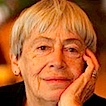
Ursula Le Guin
1929 – 2018 CE
At an early age, Le Guin saw her father making notes in an old book. In this way she discovered Lao Tzu who became a lifelong teacher and companion. Her father, a famous cultural anthropologist also exposed her to the native American shamanistic traditions. This led to a prolific and influential literary career with works translated into 31 languages and winning 21 Locus, 6 Nebula, 5 Hugo, a Newbery and World Fantasy, many “year's best” and other awards. Not just entertaining, these books challenged and positively shaped modern views on race, gender, society and the environment.
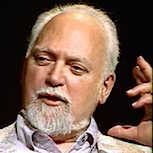
Robert Anton Wilson
1932 – 2007 CE
Agnostic mystic, Discordian saint, electrical engineer, journalist and apostle of doubt; Wilson dedicated his novels, essays, and interviews to undermining mindless belief and conditioned world view in order to expand more openness to new understanding, creativity, and innovation. An early advocate of marijuana and psychedelics, he became friends and collaborator with Tim Leary, Alan Watts, Ram Das, and Allen Ginsberg. Developing a technique he called “guerrilla ontology,” he wrote 35 books most with the intention of creating cognitive dissonance to challenge belief systems and create openness to direct experience. His book The Illuminatus Trilogy remains a cult classic and well worth reading.
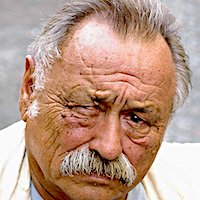
Jim Harrison
1937 – 2016 CE
"untrammeled renegade genius”
Called "an untrammeled renegade genius,” an "American literary icon,” and “a force of nature;” Harrison brought his deep poetic sense to a plethora of novels. An advocate for the benefits of a rural lifestyle, he lived most of his life on a farm in Michigan near where he was born. Most well known for his novels and screenplays like Legend of the Fall, much closer to his heart was his 12+ collections of poetry. Said to have looked like a brick layer, a beer salesman, or a sumo wrestler; he continued the Lao Tzuian, small-is-beautiful lineage of Han Shan, Henry David Thoreau, Willa Cather, and E. F. Schumacher. The superficial details of his life belie the depth of his experience, insight, and wisdom.
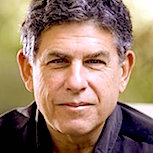
Stephen Mitchell
1943 CE –
Translator, poet, scholar; Mitchell was “educated” at the Sorbonne and Yale, “de-educated” with intensive Zen practice. He’s written fiction, non-fiction, poetry, children’s books and has translated more than 23 books including the Tao Te Ching, Gilgamesh, The Iliad and The Odyssey, the Bhagavad Gita, and the Poetry of Rainer Maria Rilke called “the most beautiful group of poetic translations the 20th century has produced.” Married to Byron Katie, founder of The Work, he coauthored two of her bestselling books: Loving What Is and A Thousand Names for Joy.
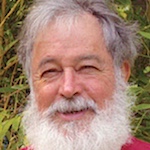
Red Pine ( Bill Porter)
1943 CE –
Exceptional translator, cultural diplomat
Son of a bank robber turned politician who became the wealthy head of the California democratic party, friends with the Kennedys and nominated for president by Eleanor Roosevelt but who later lost everything; Red Pine at an early age saw through the materialism of western culture and left the US for 22 years to study, practice, and translate in the Far East. After studying with John Wu, John Blofeld, and Chiang Kai-Shek’s personal master, Wu Ming, he traveled through Mainland China documenting his adventures with details about Chinese culture and history on over 1100 radio programs for Chinese audiences. His translations sink through the words, find the essence, and bubble the meaning up into beautiful and vivid English.
Related Sources (2 sources)
War and Peace in the Global Village by Marshall McLuhan
Finite and Infinite Games by James P. Carse
Quotes about the Apostles of Doubt Lineage (7 quotes)
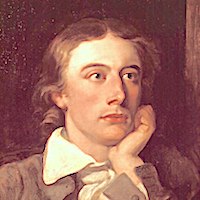
“The main quality that goes into a Man of Achievement is ‘Negative Capability’—the capacity for staying with uncertainties, mysteries, doubts, without any irritable reaching after fact and reason.”
Comments: Click to comment
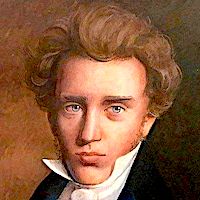
“Aristotle’s view that philosophy begins with wonder, not as in our day with doubt, is a positive point of departure for philosophy. Indeed, the world will no doubt learn that it does not do to begin with the negative, and the reason for success up to the present is that philosophers have never quite surrendered to the negative and thus have never earnestly done what they have said. They merely flirt with doubt.”
Comments: Click to comment

“I myself do not believe that anybody ever looked into the world with a distrust as deep as mine... a constant, subtle, incitement to an overturning of habitual opinions and of approved customs.”
Comments: Click to comment

“William James used to preach the ‘will to believe.’ For my part, I should wish to preach the ‘will-to-doubt.’ None of our beliefs are quite true; all at least have a penumbra of vagueness and error. What is wanted is not the will to believe, but the will to find out, which is the exact opposite.”
Comments: Click to comment
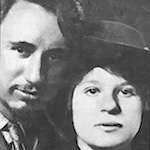
“In ancient Greece the philosophers destroyed the old faith... in many nations of modern Europe the philosophers achieved similar results. Protagoras became Voltaire, Diogenes Rousseau, Democritus Hobbes, Plato Kant, Thrasymachus Nietzsche, Aristotle Spencer, Epicurus Diderot.”
Comments: Click to comment

“Everyday I wonder how many things I am dead wrong about.”
Comments: Click to comment
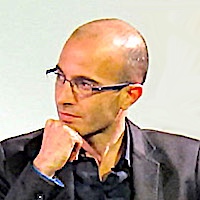
“The true expertise of priests and gurus has never really been rainmaking, healing, prophesy, or magic. Rather, it has always been interpretation... A priest is somebody who knows how to justify why the rain dance failed, and why we must keep believing in our god even though he seems deaf to all our prayers.”
Comments: Click to comment
Comments (0)